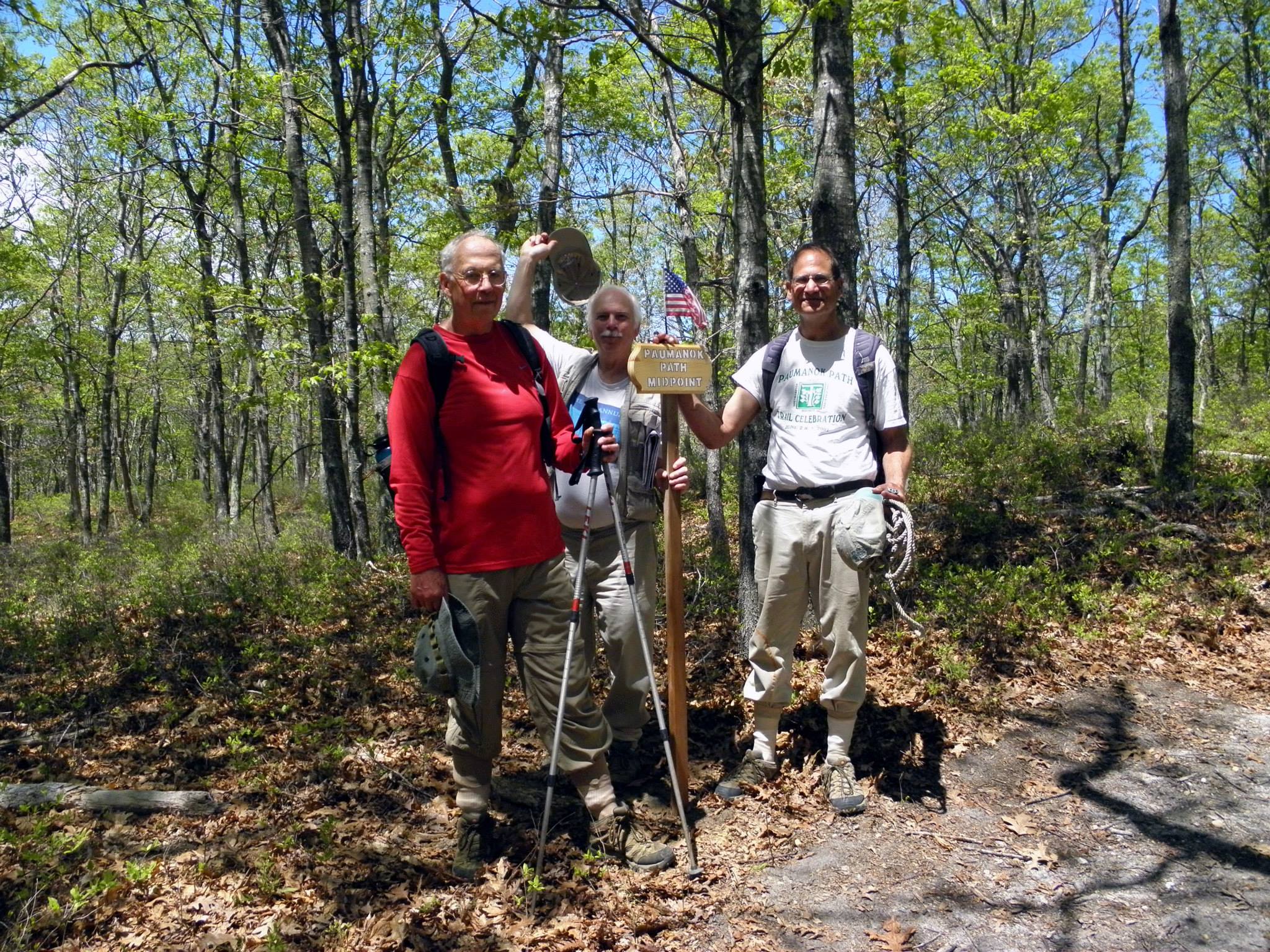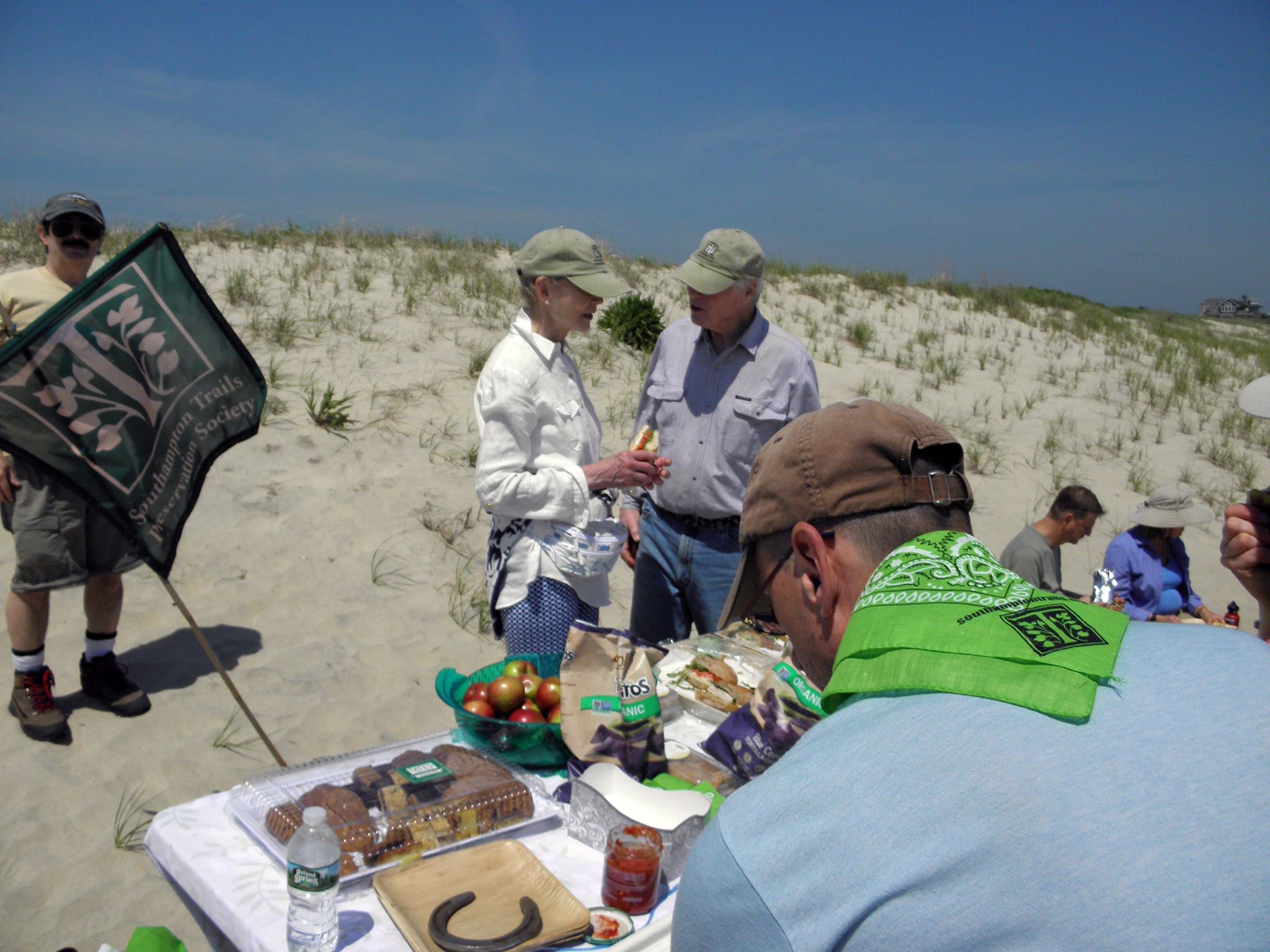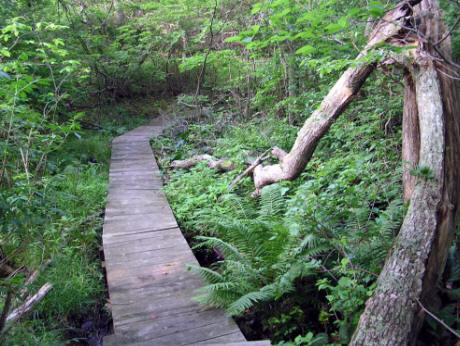Choose one of these to help with!
Volunteers are encouraged to assist on any of the following objectives that are of interest to them.
- Generate and direct resources for the maintenance and enhancement of the Southampton portion of the Paumanok Path, from Bald Hill in Brookhaven to Townline Road in East Hampton. Implement and coordinate volunteer stewardship initiatives.
- Introduce the public to the resource by leading hikes, conducting activities, and writing newspaper articles.
- Continue blazing, cutting, and trimming of the entire trail, especially sections that have “disappeared”. Remove inappropriate ‘No Trespassing’ signs, remove blazing from sections of the trail that have been rerouted. Repair, refine, and restore sections of the trail that are damaged or unsustainable.
- Get more of the trail off-road. Correct design flaws such as fall-line construction. Construct check steps, waterbars, switchbacks, climbing turns, grade dips, and drains. Bench cut trails on appropriate slopes. Periodic de-berming of trails must be instituted as a required maintenance procedure. Create bridges, and boardwalks where needed. Where appropriate move trail onto a stable ridge and rehabilitate damage left by poorly designed trail segments. Divert the Path or create trail spurs to nearby areas of interest, to discourage the formation of adventitious trails.
- Institute an annual inventory and conference for the Paumanok Path. Develop better trail issue survey techniques. Post findings on the Internet.
- Make trails more accessible through better maps, apps, and website. Document access points, parking accommodations, and provide trail descriptions.
- Implement the creation of a guide book for the Paumanok Path concerning the ecological, historic, and scenic features along the trail route.
- Remove garbage (littering and dumping of landscaping and construction debris)
- Implement formal training for maintainers who may later become additional stewards.
- Create fundraising events and write grants to pay for tools, advocacy, paid stewards, education for supervisors and volunteers. Facilitate training in trails advocacy, building, maintenance, and hiking.
- Develop objectives and write proposals for trail enhancements.
- Advocate for infrastructure: parking, informational kiosks, privies / comfort stations /water.
- Work to facilitate the creation of a representative Paumanok Path Council so all vested members can have a voice in how the trail is cared for.
- Engage in public outreach and education; writing news and informational articles. Instill an ethic of responsible and safe, low impact use on the trail. Distribute brochures on gentle use / “leave no trace.”
- Develop more effective marketing: media and social networking; community outreach. Post Paumanok Path initiatives on the website and on social media.
- Describe easy and effective tick protection.
- Work with enforcement agencies to protect the PP. Advocate for increased capital and manpower for the enforcement agencies in relation to protecting the trail and its surroundings. Develop cooperative efforts with the enforcement agencies.
- Create a list of trails-friendly establishments along the Paumanok Path: B&B’s, restaurants, sporting goods shops, bike, kayak rentals…
- Advocate for line items for trail care in state, county, and land managers’ budgets.
- Advocate for Incorporating hands-on trails experience into the school curriculum, and into college physical education courses on trail use and appreciation. Encourage the local schools and scouts to include trail stewardship initiatives and science projects into their curriculum and activities. Offer presentations at libraries and other public places.
- Work to alleviate modality conflicts e.g. bike with horse
- Implement surveys for and enforce against expansion of private property contiguous to the trail.
- Monitor for invasive plant species.
- Encourage voluntary registration of trail users. Paumanok Path Through-Hiker Registry.
- Encourage an open collaborative process for developing funding sources: sponsors, grants, donations. Seek out sponsor relationships like the one between the International Mountain Bike Association and Subaru (Subaru/IMBA Trail Care Crew).



